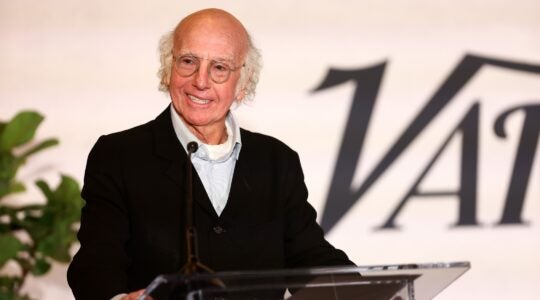Back in the late 1970s, AIPAC first published "Myths & Facts," a book full of what it called "myths" about the Arab-Israeli conflict accompanied by information debunking those alleged myths. AIPAC published numerous editions of the book, although it hasn’t put out a new edition in years. But "Myths & Facts" still lives on the Internet, now complied by the American-Israeli Cooperative Enterprise.
Today J Street, an organization that has marketed itself –and is viewed by many in the Jewish community — as an alternative to AIPAC, released its own version of "Myths & Facts." But the so-called "myths" weren’t about the Arab-Israeli conflict, they were all about J Street. A sample of the 11 "myths":
Myth:
J Street is anti-Israel.
Fact:
We are pro-Israel because we believe that a two-state solution to the Israeli-Palestinian conflict is the single best chance we have to secure Israel’s future as a Jewish democracy.
We believe in the original Zionist idea of a country where Jews could always go to be secure, and we hope that Israel will live up to and represent the core Jewish values of justice, equality, and democracy.
We also do not believe that agreeing with everything the current Israeli government does should be the litmus test for what it means to be pro-Israel.
We believe, like many American supporters of Israel, in a big tent concept of what it means to be pro-Israel. We are also hopeful that our efforts will encourage more Americans who have previously been uncomfortable with describing themselves as pro-Israel, especially young Americans, find a home in our vision of what it means to be pro-Israel.
—
Myth:
J Street has defended Iran’s nuclear weapons program.
Fact:
J Street is deeply concerned about the possible development of nuclear weapons by Iran and considers that to be a potential existential threat to the state of Israel and a serious threat to the national interests of the United States.
We agree with President Barack Obama and the leadership of the United States Congress that the United States must do everything possible to prevent the development of an Iranian nuclear weapon. We support the President’s view that the best way to address this threat at this time is through direct diplomacy, led by the United States, and have advocated for that position in Congress.
We believe that diplomacy cannot be open-ended, but we also believe that diplomatic engagement is not best pursued with a stopwatch ticking. We are of the view that at some point it may be necessary to impose further sanctions on Iran – and that to be effective those sanctions must have broad international support.
As of the early fall of 2009, we are not of the opinion that the time has come for Congress to move ahead with further sanctions. We agree with those who are calling for "strategic patience" at this moment of unrest and uncertainty in Iranian domestic politics and continue to urge Congress to give the diplomatic and political processes currently underway more time to unfold.
JTA has documented Jewish history in real-time for over a century. Keep our journalism strong by joining us in supporting independent, award-winning reporting.





